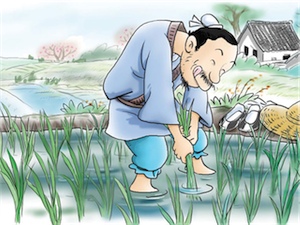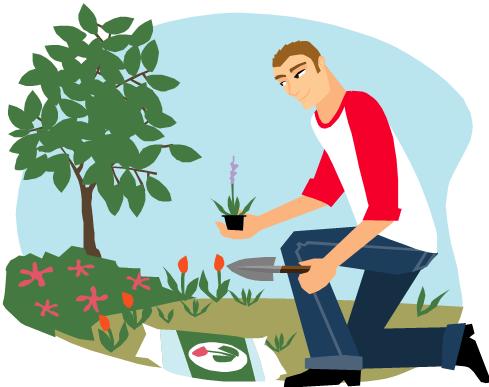The Smart Farmer

One of the biggest business challenges for any entrepreneur or organization is "client mix" -- how many of what kind of client or customer to have.
Years ago, a good friend and former client of mine, Edwin Tanaka, clarified this challenge for me with a story about how he managed his world-wide client base for Mitsui Manufacturing.
"I use an agricultural model called Radishes, Wheat, and Trees," he explained.
Puzzled, I asked him to tell me what he meant.
He responded by asking me three questions:
"Have you ever met a guy with a 100 million dollar deal who can't pay for lunch?"
I answered, "Yes, I happen to be working with someone like that right now."
Then he said, "He may not be a bad guy with a bad deal. He is just a tree farmer who has nothing to eat while he waits for his trees to bear fruit."

Then he asked, "Have you ever met a guy with a lot of money and then, soon after that, has no money -- again and again?"
I answered, "Yes, in fact, this describes me quite well."
Edwin went on. "This is not a bad guy. He's just a wheat farmer who goes from feast to famine."
Then he asked, "Have you ever met a guy who is caught up in a lot of small projects, but never seems to do anything big?"
"Yes," I said again, "I know a lot of people like that."
It's simple," Edwin continued. "They are just radish farmers with lots to eat, but not much to show for it."
I asked him what this all meant.
"The smart farmer," he explained, "plants all three. He plants some radishes that harvest every two to four weeks. He also plants wheat, at the same time, and waits six months to a year for it to come to harvest. He also plants trees, at the same time, and eats wheat and radishes while he waits for his trees to bear fruit in 15 to 30 years. The smart farmer plants all three and always has something to eat."
I asked him how this applied to his client base.

"It's all about cultivation and timing," he said. "Smaller clients are radishes and don't need a lot of cultivation. Some clients are wheat and need more cultivation. Some are trees and need a lot of cultivation."
He continued.
"Cultivation requires time, energy, conversation, materials, expenditures, presentations, and the like. If you gave a tree the same cultivation you gave a radish, you would starve it. If you gave a radish the same cultivation you gave a tree you would drown it."
"You have to have the patience of a farmer," he said. "Farmers don't go into their fields and yank on the plants to get them to grow faster. They cultivate them. They let them germinate and grow. For major clients that brought a big return, it would take us a year or two just to get in the door. Smaller clients take much less time, energy, and effort."
"I always made sure," he explained, "that I had a good balance of radishes, wheat, and trees in my portfolio of clients. Most importantly, I never gave them too much of what they didn't need or too little of what they did need."
I never forgot Edwin's words and have applied them in my business for over 20 years. I have shared this story with clients more times that I can count.
In my consulting business, I make sure my bills are paid by the radish clients -- clients that are very regular, but tend to be smaller. They get me to my financial floor and pure survival.
My wheat clients are more project oriented. They take care of the unforeseen financial obstacles and opportunities that inevitably emerge. They come and go on a recurring basis and ensure a level of sufficiency.
My tree clients are the big clients. They take longer to acquire, but they bring abundance.
Each person or business has to define, for themselves, their own profile of a radish, wheat, or tree. There are no rules except one that I learned from Edwin, keep all three in balance.
-- by Paul Roth (Idea Champions' Chief Collaboration Officer
Posted by Mitch Ditkoff at November 16, 2010 09:42 AM
Comments
Mitch, that is an excellent one and Lord knows I need to apply the mindset and the actions. Thank you to you and Paul Roth for that one.
Ambassador Bruny
Posted by: Mike Bruny ![[TypeKey Profile Page]](http://www.ideachampions.com/weblogs/nav-commenters.gif) at November 27, 2010 12:22 AM
at November 27, 2010 12:22 AM
Post a comment
Thanks for signing in, . Now you can comment. (sign out)
(If you haven't left a comment here before, you may need to be approved by the site owner before your comment will appear. Until then, it won't appear on the entry. Thanks for waiting.)














